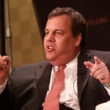Frank is one of the brightest (and most obnoxious) members of the House. From up close, he watched Gingrich ascend to power. While I was writing a book on Tom DeLay, Frank told me that Gingrich promised to be a “transformational” leader, then succeeded in changing how business is conducted in the House.
“He disregarded parliamentary procedure. He was willing to destroy the institution to achieve his objectives,” Frank said, describing Gingrich as the “most destructive member of Congress” that he had ever known.
Not all of Gingrich’s critics are Democrats. Mickey Edwards, a former representative from Oklahoma who served with Gingrich in the minority leadership, told me that Gingrich “made the Congress a much more partisan institution.” Edwards sees Gingrich as an unintended (and unfortunate) consequence of the heavy-handed tactics of Democratic Speaker Jim Wright, who used closed rules on floor votes to deny minority members the opportunity to offer amendments and shape legislation.
Edwards said that moderates like Steve Gunderson and Nancy Johnson, who were frustrated with Wright, provided Gingrich the votes he needed to win his first leadership race. “Nobody particularly liked Newt,” Edwards said. “But because of Jim Wright, they turned to a bomb thrower” as minority whip in 1997.
Gingrich came to Congress throwing bombs, immediately teaming up with Pennsylvania Republican Bob Walker in a calculated attempt to obstruct the legislative process. Gingrich also coordinated nightly speeches that Republicans made for C-SPAN cameras, ripping Democrats and Democratic policy in an empty House chamber.
As minority whip in 1989, Gingrich turned up the heat. “He started to force procedural votes on wedge issues that were not intended to pass but were intended to embarrass members of the other party,” Edwards said. Gingrich also succeeded in driving Jim Wright out of Congress, on rather inconsequential ethics charges.
By 1993, Gingrich was presiding over discreet meetings in Capitol Hill restaurants with Bob Walker, Tom DeLay, Dick Armey, and Bob Livingston — a group that Republican staffers called “the Jihadists.” Gingrich announced he would challenge Minority Leader Bob Michel, whom he considered too willing to compromise with Democrats. Michel announced his retirement.
In the 1994 midterm elections, Republicans gained 52 House seats and eight Senate seats. They were the majority in Congress for the first time since 1954, with Gingrich as the architect of his party’s triumph. According to Edwards, Congress changed in a fundamental way that year: “It all came to head with the Contract with America, when the Republican members stood on the steps of the Capitol and pledged as a unit to support this partisan document.”
They were no longer 435 members of Congress, with their own beliefs and their own loyalties to their constituencies. The Republicans were transformed into one partisan block.
“There were two things Newt was known for,” a Republican staffer who asked to remain anonymous told me. “Throwing 99 ideas up against the wall — 95 would be absurd, but three would be brilliant and would stick. And creative destruction.”
Quite a few Gingrich reforms fall into the latter category. “Newt changed the way committee chairs were selected,” Edwards said. “His insistence was on how often you voted with the party. How much money you raised for the party. Not how much seniority you had.” Gingrich cut congressional-committee staffs by a third and slashed staff budgets from $222.3 million to $156.3 million. He abolished three committees and 25 subcommittees. The Committee on Committees was shut down and its authority to make committee assignments assumed by the Steering Committee, which Gingrich controlled.
Gingrich eliminated budgets for all 28 legislative service organizations. The Black Caucus, the Hispanic Caucus, the Caucus on Women’s Issues, the Environment and Energy Study Conference could continue to meet. But they would have no staff, no office space, and no funding.
Gingrich also shut down agencies that threatened his agenda, such as the Office of Technology Assessment. And he set out to intimidate directors of other offices, such as Robert Reischauer in the Congressional Budget Office. “It’s our intention to largely replace CBO [sic] with more moderate economists,” Gingrich spokesperson Tony Blankley said.
Concerned that staff purges would neuter the agency responsible for economic scoring of House bills, a bipartisan breakfast group of 15 former Hill staff members began to create a “shadow CBO.”
Wendell Belew, a former House Budget Committee counsel, told me he had forgotten the shadow CBO breakfast meetings he attended, but recalls the attacks on Reischauer. “It was inappropriate. Bob Reischauer was a terrific public servant,” Belew said.
Belew also found some of Gingrich’s symbolic measures, such as eliminating free ice delivery to members’ offices, laughable. Others, like removing copies of the U.S. Code from Congressional offices, were not so funny. “It seemed counterproductive that you would remove copies of federal laws from the offices of lawmakers to save money,” Belew said.
Other symbolic acts were open assaults on the institution. Gingrich tried to sell one congressional office building, he said, “because as a symbol, we have to sell a building.”
There was a method to his madness. Every move was calculated to underscore the speaker’s authority or concentrate power in the leadership.
The changes Republicans made to House rules in 1995 made Newt Gingrich the most powerful speaker since Joe Cannon and Thomas Reed held the office at the end of the previous century. Yet Gingrich was one of the most spectacular flameouts in modern politics. An essay in President Clinton, Newt Gingrich, and the 104th Congress describes the beginning of his end: “Fast forward one year to January 1996…. Newt Gingrich and the Republicans had been blamed by the public for unnecessarily shutting down the government twice in the previous three months. Gingrich had the highest negative poll ratings of any major national leader. Most of the Contract had not become law. Conservative House Republicans blamed Gingrich for their failure to win broader victories and talked openly of a revolt against the Speaker.”
Fast-forward another year to 1997, and Tom DeLay and Dick Armey were secretly plotting to overthrow him. Yet Gingrich persisted, pushing House Republicans to impeach Bill Clinton over the Monica Lewinsky affair and paying the price for his overreach. He had promised a gain of 20 seats in the 1998 elections. His party lost five. Gingrich resigned from the speaker’s office in November and resigned from Congress in January. His successor, Bob Livingston, never took the oath, after it was revealed that, like Clinton (and Gingrich), Livingston had been involved in at least one extramarital affair.
“Newt Gingrich has no philosophy except power. Whatever will advance his cause,” Edwards said. “When you look at the Congress today — the dysfunction in Congress — that’s Newt Gingrich’s legacy.”
***
Dear Director [Douglas W.] Elmendorf,
If the news reports about your testimony to the super committee are accurate, you owe the American people a clear and detailed explanation of your reasoning.
As someone who led an effort which reformed government and led to four consecutive balanced budgets — paying off over $400 billion in federal debt I was astounded by the news reports of your testimony.
According to the reports you suggested that efforts to eliminate waste and fraud would produce “a negligible impact.”
For those of us who believe in modernizing government this was an alarming statement.
If your statement represents the official attitude of the Congressional Budget Office then everyone involved should be fired and a new CBO team should be assembled…
What is the CBO explanation for rejecting the real world in favor of defending existing Washington inefficiency, incompetence, waste, and fraud?
We look forward to an explanation.
Sincerely,
Newt Gingrich
— From a November 16, 2011, letter to the director of the Congressional Budget Office






0 Comments